Africa
Senegal’s Debt and Deficit: A Harsh Economic Reality [Business Africa]
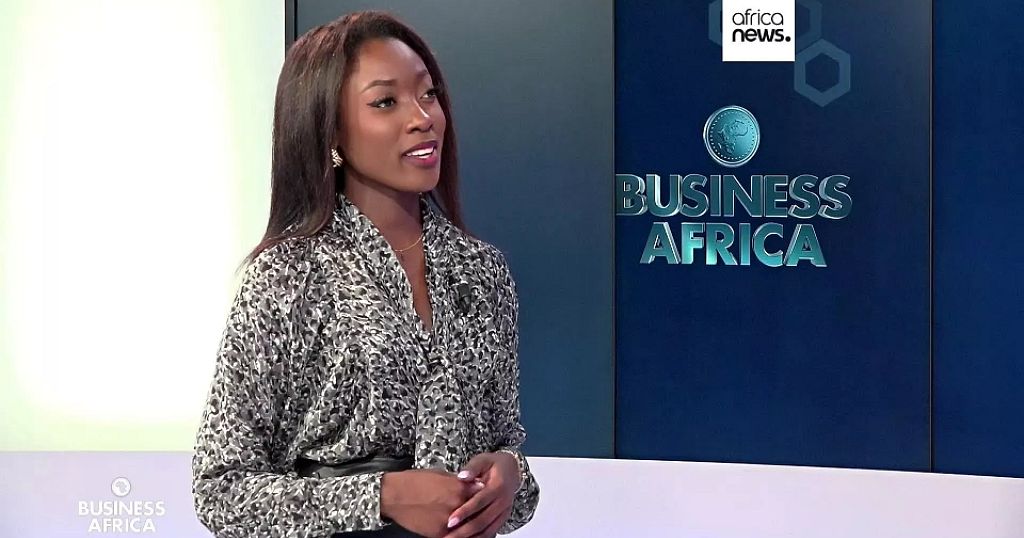
This week on Business Africa: Senegal faces a budgetary crisis following a damning report, Ibrahim Traoré bets on industrialization for Burkina Faso’s self-sufficiency, and Nigeria seeks to harness its mining potential to reduce imports.
Senegal: Public Finances Under Strain After Court of Auditors Report
Senegal is facing a financial transparency crisis after the latest report from the Court of Auditors revealed significant irregularities: public debt at 99.67% of GDP, well above the initially announced 74.41%, and a revised budget deficit of 12.3% of GDP for 2023. These accounting errors have eroded investor confidence and threaten the country’s economy.
The Crisis’s Causes: Accounting Anomalies and Opaque Practices
The Court of Auditors’ report highlights unaccounted debts, opaque spending, and irregular budget transfers. These practices have inflated the debt and worsened the deficit. Senegalese economist Ousmane Dieng explains that the cash-based accounting system is outdated and that switching to accrual accounting could have prevented these adjustments. “If this transition had been made, many of these errors would not have occurred,” he says.
Government Response: Reform Promises and Suspension of IMF Withdrawals
In response to the crisis, the government has suspended its IMF disbursement requests and committed to reforms, including the centralization of debt management and tighter controls over external projects. Ousmane Dieng urges investors to view the situation in context and criticizes the crisis communication. “The government must avoid sensationalism and reassure donors,” he emphasizes.
The crisis could delay or suspend several infrastructure projects funded by loans. Dieng advocates for alternative financing and the inclusion of natural resources in GDP calculations. He argues that, like Algeria, Senegal should factor in its natural resources to ease the pressure on public finances.
Raising Financial Literacy and Revalorizing Savings
Dieng also stresses the importance of raising public awareness about financial literacy. Public savings schemes could help capture idle savings for development financing. “We must involve Senegalese people in financing their own development,” he concludes.
Senegal needs to undertake structural reforms to restore transparency and investor confidence. Adopting accrual accounting and ensuring rigorous public finance management are essential to maintain the country’s economic stability and secure confidence in its future.
Burkina Faso Under Ibrahim Traoré: Industrialization as a Lever for Economic Sovereignty
Since taking power in 2022, Captain Ibrahim Traoré, leader of Burkina Faso, has focused on economic self-sufficiency to reduce dependence on foreign aid and harness internal resources. This strategy, shared with Mali and Niger within the Sahel States Alliance, aims to strengthen economic sovereignty, as explained by Professor Hamidou Sawadogo.
The focus is on agriculture, with significant investments and an increase in production tools. The 2024 farming season produced nearly 6 million tonnes of cereals.
However, securing the territory remains a major challenge to ensure the sustainability of this strategy. The government continues to improve economic efficiency, with a projected growth rate of 3.7% in 2024. However, due to security and structural challenges, Burkina Faso must adjust its model to meet development realities.
Nigeria: Underdeveloped Mining Potential Costing the Nation Dearly
In a report by Tesem Akende, Nigeria, despite spending $10 billion annually on importing raw materials, possesses significant untapped mineral deposits. Geologist Eric Biame points out that exploiting these resources could transform the economy by reducing import dependence. Yet, the mining sector contributes less than 1% of GDP, with $9 billion lost annually due to illegal mining.
In response to this challenge, the government is working to eradicate illegal mining and attract investors. Mining engineer Plankat Dashwet calls for issuing permits to encourage investment. The government has already arrested over 300 illegal miners and is implementing reforms to regulate the sector, reduce imports, and create jobs, as explained in this report by Tesem Akende.
Africa
Unprecedented trial for apartheid atrocities opens in South Africa
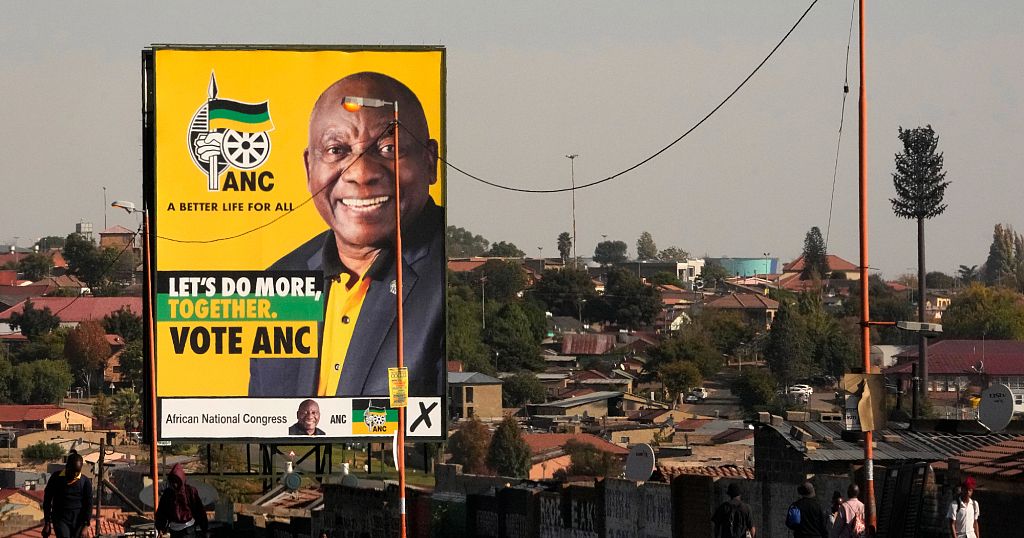
A significant step by South Africa’s legal system in confronting the atrocities of the country’s dark political past.
A judge this week approved the trial of two apartheid-era police officers for their involvement in the 1982 assassination of three student activists.
The prosecution is unprecedented. Until now, no individual had been held accountable for the crime of apartheid.
The case centers around three young freedome fighters killed in an explosion in 1982. The victims were part of a resistance movement opposed to the apartheid regime which enforced White-only rule and domination over the Black majority.
Experts say the trial could open the door for others.
Also this week, South Africa reopened an investigation into the death Albert Luthuli, a former president of the African National Congress (ANC) and Nobel Peace Prize laureate, who was killed in 1967.
The prosecuting authority seeks to have the findings of previous inquests into Luthuli overturned.
The authorities at the time had concluded that Luthuli’s death the result of an accident.
The development comes more than 30 years since South Africa became a democracy and after a Truth commission unearted numerous atrocities.
Africa
Tunisia jails opponents, critics of President Saied
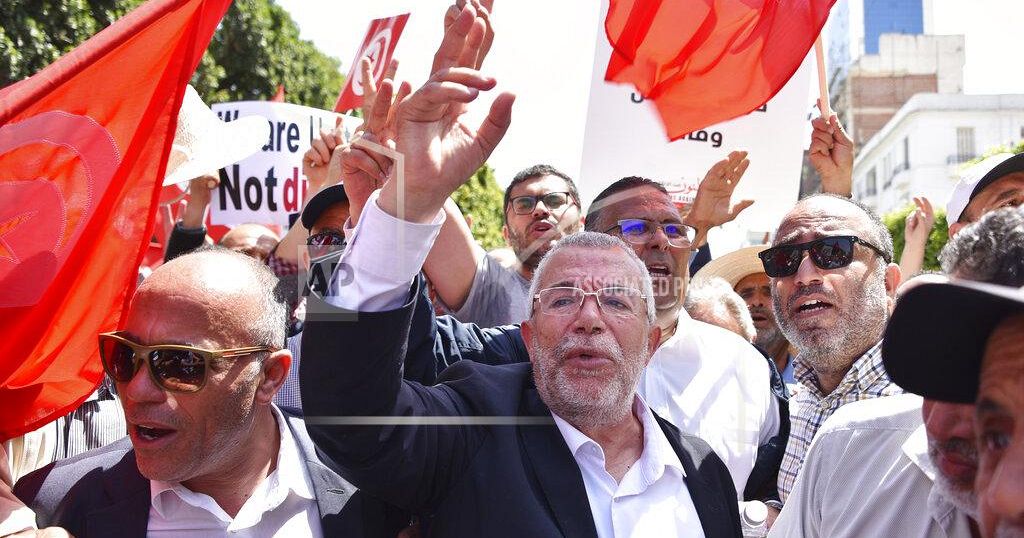
Tunisia on Friday handed opponents of President Kais Saied lengthy jail terms after convicting them of plotting against state security.
Issam Chebbi and Jawhar Ben Mbarek of the opposition National Salvation Front coalition, as well as lawyer Ridha Belhaj and activist Chaima Issa, were sentenced to 18 years behind bars, their lawyer said.
Businessman Kamel Eltaief received the harshest penalty of 66 years in prison.
They are among forty people, including high-profile politicians, businessmen and journalists, who who were being prosecuted on security and terrorism charges.
Critics say the charges lacked merit, and only served to consolidate Saied’s power grab.
The president won re-election virtually unchallenged last year after the jailing or disqualification on flimsy grounds of his opponents.
Saied has ruled mostly by decree since dismissing parliament in 2022 and promulgating a revised constitution giving himself wideranging powers in 2023.
Africa
Tanzania opposition says jailed leader not seen by family, lawyers
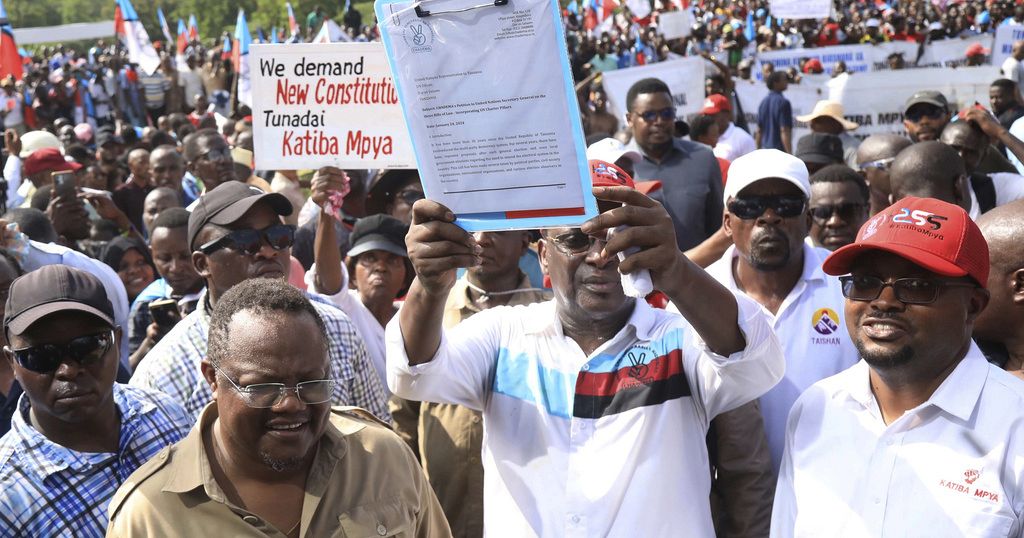
Tanzania’s main opposition party said it had failed to get access to its leader who is in detention on treason charges.
CHADEMA said Friday that the family and lawyers of Tundu Lissu had failed to see him at a Dar es salaam jail where he had been kept since his arrest on April 9.
In a statement, the party said it held the Tanzanian government and Prisons Service responsible ble for Lissu’s safety.
The Prisons Service quickly denied that Lissu had been moved from jail.
In a statement, the agency dismissed CHADEMA’s concerns as misinformation.
“We would like to inform the public that Tundu Lissu is safe and he is still detained at Keko Prison in Dar es Salaam according to the country’s laws and procedures,” the Service said in a statement.
Lissu came second in Tanzania’s 2020 presidential election. Last week, he was arrested and later charged with treason after a speech demanding election reforms.
Prosecutors said the speech called for an uprising.
With another presidential vote on the horizon, critics say President Samia Suluhu Hassan’s government has ramped repression against the opposition.
This week, the election commission banned CHADEMA from taking part in elections after the party refused to sign a document pledging to obey the commission’s orders.
-

 Education1 day ago
Education1 day agoHarvard’s battle with the Trump administration is creating a thorny financial situation
-

 Sports2 days ago
Sports2 days agoAaron Rodgers ‘not holding anybody hostage’ as he decides his future, retirement a possibility
-
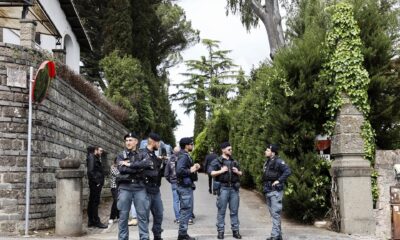
 Middle East8 hours ago
Middle East8 hours agoIran says progress in nuclear talks with US, confirms third round next week | News
-
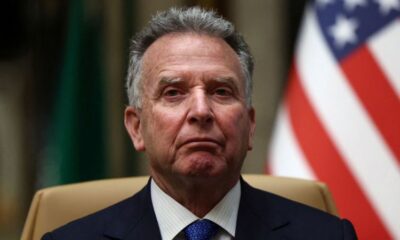
 Europe1 day ago
Europe1 day agoTrump’s ‘lone ranger’: How Steve Witkoff became the defacto point man on America’s foreign policy challenges
-

 Lifestyle1 day ago
Lifestyle1 day agoSweets from the sky! A helicopter marshmallow drop thrills kids in suburban Detroit
-
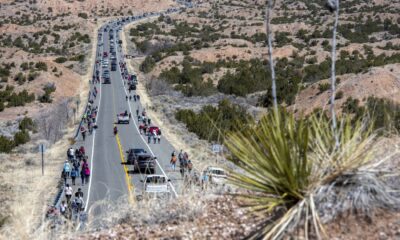
 Lifestyle2 days ago
Lifestyle2 days agoThousands of pilgrims trek through New Mexico desert to historic adobe church for Good Friday
-
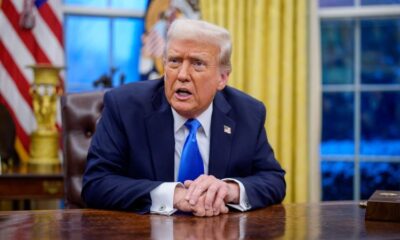
 Europe1 day ago
Europe1 day agoThe Trump administration says Europe is taking advantage of the US. That’s not exactly true
-

 Conflict Zones1 day ago
Conflict Zones1 day agoTrump says US may ‘pass’ on helping end war if Russia, Ukraine resist deal | Russia-Ukraine war News



